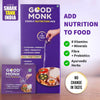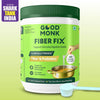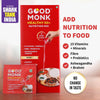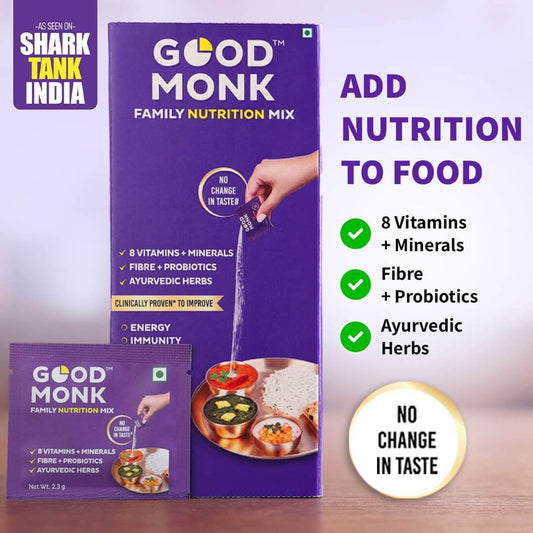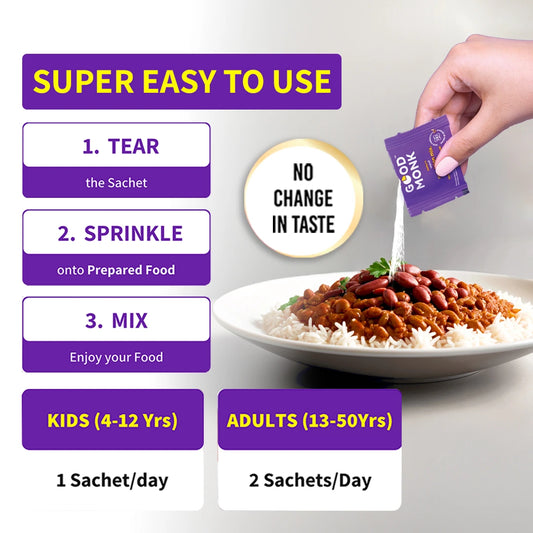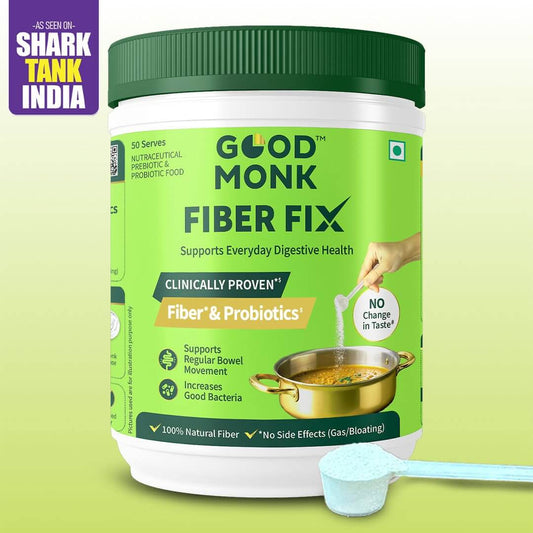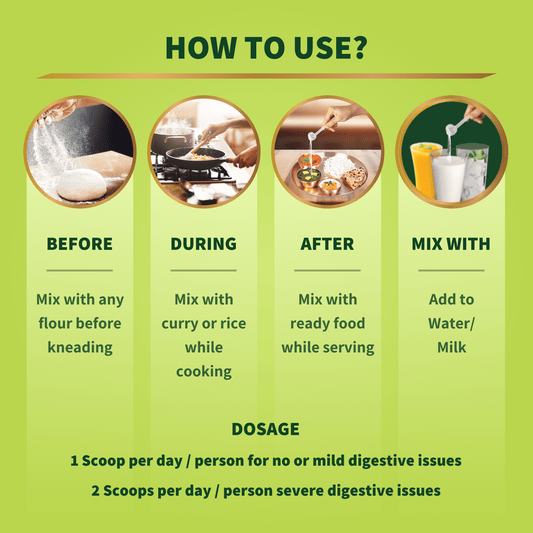Key Takeaways
- Dietary supplements help fill nutritional gaps and support energy, immunity, digestion, and overall wellness.
- Common types include vitamins, minerals, herbs, protein powders, probiotics, and omega-3s.
- They’re especially useful for pregnant women, seniors, vegans, or those with specific health needs.
- Choose high-quality, third-party tested products and never use supplements as a substitute for a balanced diet.
In This Article
Why Do People Take Dietary Supplements in Their Daily Routine?
Different Types of Dietary Supplements
Key Benefits of Taking Dietary Supplements for Better Wellness
Common Risks and Mistakes With Supplement Use
The rapid pace of the modern world is making people look for ways to support their health and well-being. It is because all their focus is on their growth in the workplace, making them skip the thought of having a proper meal. That’s where dietary supplement options enter the picture!
They are becoming an increasingly popular solution among people. But now the real question that lies ahead of us is, what is a dietary supplement, and do you need them? The following blog will break down everything you need to know about the role of supplements in modern nutrition, their types, and benefits, to common risks associated with them.
What Is A Dietary Supplement?
Wondering what the dietary supplement's meaning is?
A dietary supplement refers to substances designed to add essential nutrients to your daily intake. You can find these supplements in various forms, such as capsules, pills, gummies, or liquids (1).
They often boast of minerals, vitamins, enzymes, amino acids, and herbs that provide thorough support to your overall well-being. Nutrition powders from Good Monk can prove to be an ideal choice if you’re looking for a wholesome option. It is thoughtfully formulated to enhance your daily nutrition needs, making it a perfect supplement for your daily routine.

Why Do People Take Dietary Supplements in Their Daily Routine?
People consume dietary supplements in their routine for various reasons, such as: (2)
To fill nutritional gaps in their diet.- Preventing or managing nutritional deficiencies.
- Support their specific health goals, such as better bone health, immunity, and energy levels.
- Enhance their athletic performance or recovery period.
- Lastly, to support their overall wellness once they start aging.
Different Types of Dietary Supplements
The different forms of dietary supplements are as follows (3):
Vitamins and Minerals
They are the most common supplements that people require in their daily routine. The vitamins and minerals commonly taken as supplements are Vitamins A, C, D, E, K, and B-complex, and minerals like magnesium, calcium, zinc, and iron are necessary for certain bodily functions, such as bone health, overall wellness, etc.
Herbal Supplements
These supplements are mainly made from plants and are utilised for their potential health benefits. Some of the popular supplements include turmeric, amla, ashwagandha, garlic, ginger, etc. They belong to the natural types of dietary supplements and serve important functions by providing much-needed health benefits.
Protein and Amino Acids
Protein powders and amino acid supplements belong to the category of types of dietary supplements and are especially popular among fitness enthusiasts and athletes. They help build and repair muscle, support metabolism, and assist in post-workout recovery.
Omega-3 Fatty Acids
Omega-3 fatty acids are mainly derived from algae or fish oil, and are renowned dietary supplements for energy and immunity. Their consumption helps support brain and heart health, improve cholesterol levels, and reduce inflammation.
Probiotics and Enzymes
Probiotics are beneficial bacteria that boost immunity and support gut health. Whereas, digestive enzymes help break down food for better nutrient absorption. Moreover, they play a vital role in maintaining immune and digestive health. Try fiber powder from Good Monk to boost your gut health.
Who Might Need Supplements?
Even though many people meet their nutritional needs by consuming a well-balanced diet, certain groups may benefit from age-specific supplement needs. It is because of lifestyle choices or nutritional gaps and supplement support.
- Pregnant or breastfeeding women might require additional iron or folic acid to support both maternal and fetal health.
- Older adults often show a deficiency of nutrients such as vitamin D, B12, and calcium. Good Monk’s multivitamin for old ageis specially formulated for senior citizens.
- People following a vegan diet.
- Individuals battling specific health conditions.
Key Benefits of Taking Dietary Supplements for Better Wellness
Some of the key benefits of dietary supplements are (4):
Prevent deficiencies and fill nutritional gaps. Enhance mood, energy, and cognitive function. Support specific bodily functions and overall health (like heart, bone, or immune health)Reduce the risk of certain health conditions. Support digestive health with enzymes and probioticsAids in muscle growth, recovery, and athletic performance.For a well-rounded approach, don’t forget to explore Good Monk’s nutrition mix powder, as it is a convenient way to boost your daily nutrient intake.
Common Risks and Mistakes With Supplement Use
Despite their benefits, it is sad to know that taking supplements is not risk-free, as there are many side effects of supplements. Some of the major supplement side effects and warnings are:
- Consuming high doses can cause adverse effects or toxicity.
- Not checking whether the supplements are suitable for the body or not
- Choosing unregulated or low-quality products.
- Ignoring individual needs and blindly following the trend.
- Using supplements as a replacement for a balanced diet.
Conclusion
Dietary supplements can play an important role in providing support to your health, especially if you are suffering from specific deficiencies or have certain needs. However, what you must remember is the fact that they are not substitutes for a healthy lifestyle and balanced diet.
For those searching for a trusted herbal and vitamin supplements guide, we at Good Monk offer thoughtfully formulated products designed to promote overall wellness and bridge nutritional gaps.
Explore Good Monk today and take a step closer towards safer, smarter implementation.
FAQs on Dietary Supplements
Q.1. Do dietary supplements work?
Some supplements are proven to help with specific deficiencies or health conditions, but not all are effective for everyone. Results depend on your individual needs and the quality of the supplement.
Q.2. Are supplements necessary if I eat a healthy diet?
If you eat a varied and balanced diet, you may not need supplements. However, certain life stages or health conditions may require additional nutrients.
Q.3. What vitamins and minerals are commonly taken as supplements?
Common supplements include vitamin D, calcium, iron, vitamin B12, vitamin C, and magnesium.
Q.4. Can I take multiple supplements at the same time?
Some supplements can be safely combined, but others may interact or cause side effects. Always check with a healthcare provider.
Q.5. How can I tell if a supplement is safe?
Look for products tested by third-party organizations, check ingredient lists, and consult a healthcare professional before use.
Citations
1. FDA 101: Dietary Supplements | FDA
2. Should You Take Dietary Supplements? | NIH News in Health
3. Supplements: Purpose, Types, Benefits, Risks
4. https://www.healthline.com/health/nutrition/dietary-supplements#benefits
Related Blogs
How your body changes with age and the best foods for old age
Nutrition-rich foods to include in your diet
About the Author
Written by the team at Good Monk—a clean and honest nutrition brand supported by doctors and food scientists. Every product is backed by clinical studies and made to help families eat better, feel better, and live healthier every day.
Popular Searches
Dietary Supplement | Health Drink For Senior Citizens | Pineapple Powder | Family Health Nutrition Combo | Fiber Supplements India | Orange Powder | Milk Powder For Kids | Instant Drink Mix | Immunity Booster | Weight Loss Powder | Weight Management Programs
